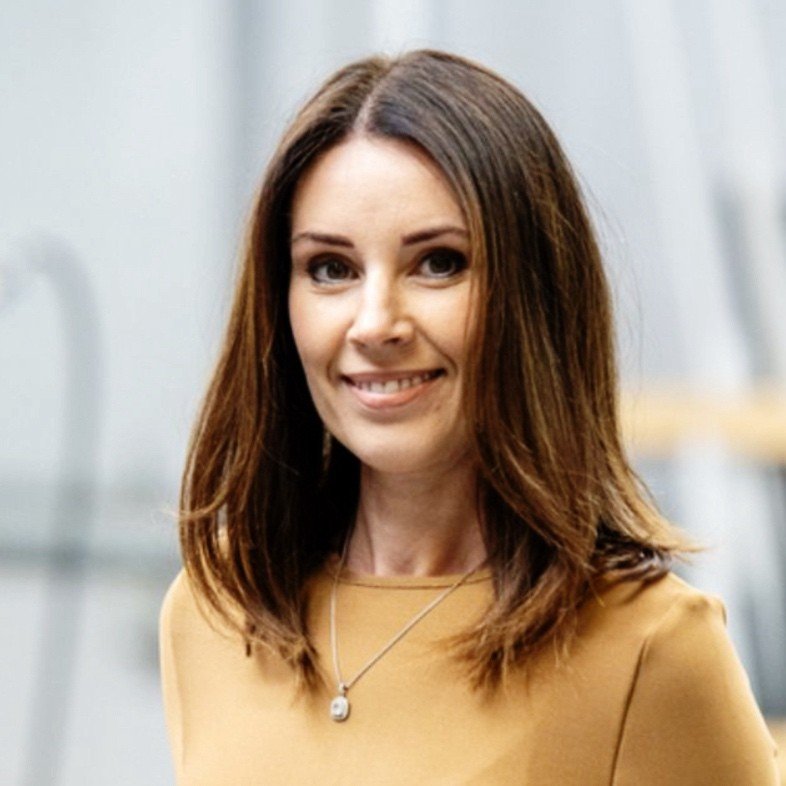By Rebecca Sutherland, investor, mentor, and founder of HarbarSix Ltd
Entrepreneurship demands balance. You have so many responsibilities to juggle, and often in the beginning, all the decisions fall on you. Spending hours trying to make sense of the numbers accumulated on a boring spreadsheet can cause any founder to doubt themselves and create unrealistic expectations.
Budgeting for your business shouldn’t just centre around scaling and reaching that next big milestone; it should be about alleviating unnecessary stresses and developing a plan that your brain can handle. There is so much potential you can tap into, but if your mental wellbeing is neglected, things can quickly spiral. I have broken down why it’s important to budget for your mental health and the key strategies to adopt so you can plan hassle-free.

Treat Mental Health Like a Business Expense
When I launched my first startup, I built the budget like most founders do: line items for product development, marketing, payroll, and legal fees. Everything was meticulously accounted for—except me. My mind, my energy, my health? No pound sign next to those. Not even a footnote.
Mental health isn’t a soft topic. It’s operational infrastructure. If your mind isn’t working, neither is your business. Yet most founders treat their own mental bandwidth as infinite. It’s not. If a key machine in your startup broke down, you’d fix it immediately, no questions asked. But when you, the founder, start showing signs of burnout or decision fatigue, you push through and call it hustle. You wouldn’t expect a product to scale on a server with no bandwidth. So why expect your business to grow when your brain is overloaded?
Start by setting a real budget. Not just time, but money. Include costs like therapy, coaching, gym memberships, and even digital detox retreats. These aren’t luxuries, they’re the equivalent of server maintenance.
Reframe “Time Off” as Strategic Planning
Founders tend to treat rest like a reward for hitting goals. It’s not. It’s a prerequisite for making good decisions.
Take this in: Some of the worst decisions I’ve made – overhiring, bad partnerships, product pivots happened when I was too tired to think straight. Not because the ideas were terrible, but because my brain was.
Block non-negotiable recovery time into your schedule like you would investor calls or product sprints. That means at least one day off per week, regular phone-free hours, and a hard stop in the evening. You’re not lazy for resting. You’re responsible.
Recognise the Hidden Costs of Isolation
Startup life is lonely. Even if you have co-founders, there’s pressure to “have it all together.” But no one does. And pretending you do only makes it worse. To avoid imposter syndrome and establish confidence in yourself, I suggest joining a founder group, talking to a mentor, or starting therapy. Real conversations save you from the mental spiral that comes from thinking you’re the only one struggling. Isolation isn’t a badge of honour, it’s a risk factor.
Be Honest About What’s Sustainable
Forget the stories of founders sleeping in their office and living on protein bars. That might get you a headline, but it won’t get you to year five.
Ask yourself: Can I keep doing this for the next two years? If the answer is no, change the pace before it forces you to. Delegate. Delay. Trim the roadmap. Sustainability isn’t about going slow; it’s about staying in the game long enough to win.
Promote Mental Health in Your Company Culture
Your habits as a founder set the tone. If you glorify overwork, your team will follow. If you prioritise mental health, they’ll feel safe doing the same. Make it clear that wellbeing isn’t optional. Offer mental health benefits. Talk openly about burnout and recovery. Show your team that rest is part of the strategy, not an exception.
Building a startup is hard enough when you’re operating at 100%. Doing it at 50% because you didn’t take care of your mind? That’s how businesses and people break. Mental health isn’t an extra line on your spreadsheet. It’s the foundation under all of it. Budget for it like your company depends on it, because it does.
Rebecca Sutherland Bio
CEO & Founder, HarbarSix
Rebecca Sutherland is the visionary force behind HarbarSix, a hybrid investment fund and business accelerator designed to power up high-potential founders with more than just capital. At the heart of her mission is a belief that exceptional businesses are built not only with smart strategy but with empowered leaders and the right ecosystem of support.
With over 20 years of experience in scaling small businesses and transforming overlooked ventures into sustainable success stories, Rebecca brings a unique blend of commercial acumen, leadership insight, and emotional intelligence to the table. She has a sharp eye for spotting potential where others see obstacles, and she’s on a mission to make sure bold ideas don’t fall through the cracks simply because they don’t fit the traditional startup mould.
Through HarbarSix, Rebecca leads a highly selective programme investing in six standout businesses every six months. But this isn’t your average accelerator. HarbarSix offers deep partnership, one-on-one coaching, access to expert networks, and a shared toolkit that founders can use. It’s a growth ecosystem built for those who are ready to do the work and scale with integrity.
Rebecca’s approach is grounded in the belief that mindset drives results. She champions founders who lead from within, and she’s known for combining big-picture strategy with the kind of practical, hands-on support that truly moves the needle. Whether guiding a business through a make-or-break quarter or helping a founder breathe through a boardroom curveball, her leadership is clear, calm and unapologetically committed.
At HarbarSix, Rebecca isn’t just investing in businesses, she’s backing people, because she knows that when founders grow, their companies follow.
The post Beyond the Spreadsheet – Why Founders Need To Budget For Their Mental Health appeared first on Real Business.
